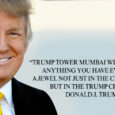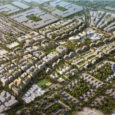Dubai foreign investors : When it is completed, ICD Brookfield Place — a new Foster + Partners-designed skyscraper in Dubai’s financial district — will tower 282m above the ground. It is one of the few development projects in the United Arab Emirates to tap into institutional investment from overseas. In 2012, the Investment Corporation of Dubai formed a joint venture with the global property arm of Canada’s Brookfield Asset Management, one of the world’s largest commercial property companies, to build it. Construction began this year.
Skyscrapers have sprouted rapidly out of the deserts of the UAE over the past 20 years, but so far ICD Brookfield Place remains a rarity in a commercial property market that is largely domestic and regional. Property advisers hope the tower is a sign of things to come.

Dubai foreign investors
“This is the single biggest opportunity that the UAE has in its real estate sector. There is extraordinary interest, but it is difficult because this is a fairly illiquid market,” says Nicholas Maclean, managing director for the consultancy CBRE Middle East. CBRE and estate agency group JLL are joint letting agents for ICD Brookfield Place.
“We repeatedly have people representing funds come through our office looking for market briefings, for opportunities, but many of those investors go away disappointed,” he says. “There is no shortage of demand; it’s the supply side that is lacking.” (Dubai foreign investors)
Overseas ownership of real estate in Dubai has only been allowed since 2002, when some areas were opened up. Gaurav Shivpuri, head of capital markets for Middle East and north Africa at JLL, says new laws have helped to make the sector more transparent since then.
Most inbound investment has come from institutions and wealthy individuals from Gulf Cooperation Council states, says Ian Albert, MENA director at property consultancy Colliers International. Residential properties are marketed to individual investors in countries such as China. (Dubai foreign investors)
Global investors who have dipped their toes in the water include Pramerica, the asset management arm of US insurance group Prudential Financial; the insurer AIG; Australia’s Goodman Group; New York-based Related; Singapore’s CapitaLand and Texas-based Hines. But such investments remain “few and far between”, Mr Shivpuri says, partly because of rapid and dramatic property cycles — a sign of an immature market. “Since 2002, the emirate has typically gone only three to four years between property market slumps,” he adds. (Dubai foreign investors)
Large malls and office buildings are rarely put up for sale, with owners preferring to hold on them as long-term income investments. The “strata” system — under which office buildings are divided up and sold to different investors ahead of completion — has also held back the market, says Mr Maclean. “Being multi-owned prevents them from being let to their full potential or sold, because many international occupiers won’t go into a building that is strata titled,” he says. (Dubai foreign investors)

Dubai foreign investors
Lower oil prices have affected occupier demand for real estate, especially in Abu Dhabi, a centre for oil and gas. Dubai has suffered less, says Mr Shivpuri, while a “flight to quality” has allowed rent levels and occupancy to remain stable in prime locations.
The emirates, especially Dubai, rapidly developed their existing real estate by using local funding. Low oil prices in recent years have had a dampening effect on demand for new offices and hotels. This might beg the question whether the UAE really needs additional property investment from overseas. Mr Maclean believes it does, not least because “cross-border investment [in real estate] tends to cause improvement in the quality of the stock.”
Jesse Downs, managing director of Dubai-based Phidar Advisory, a property research firm, says that despite an office vacancy rate of 21 per cent in Dubai, there is still a scarcity of top-quality options aimed at international companies. This has prompted both HSBC and Standard Chartered to build their own headquarters.
Pressure from lower oil prices may push Middle Eastern governments to open up to more foreign direct investment, CBRE argues. Mr Maclean is urging the UAE government to sell some of the developments it owns and occupies to help build confidence in the sector by offering assets with long-term, government-backed, income streams.
Meanwhile, the global search for income in a low-yield environment has pushed capital towards property. Mr Shivpuri says that global investors such as Brookfield Asset Management and Blackstone, the private equity investors who have become the world’s largest property managers, are now “exploring emerging markets for higher returns and asset diversification”.
Mr Maclean says Brookfield’s bold skyscraper in Dubai is “an example of a major international corporate putting a stake here, and that’s caused quite a level of interest among others”.
Call +91 – 9845017139 / +91 – 9845044734 / + 91 – 9845064533 / 080 – 42110 448 / 080 – 42124147 / 080 – 49598502 to Know more about buying Property in Dubai
Book mark our Website to get latest Updates, http://propheadlines.com, Stay in touch in our Face book page https://www.facebook.com/propheadlines/




